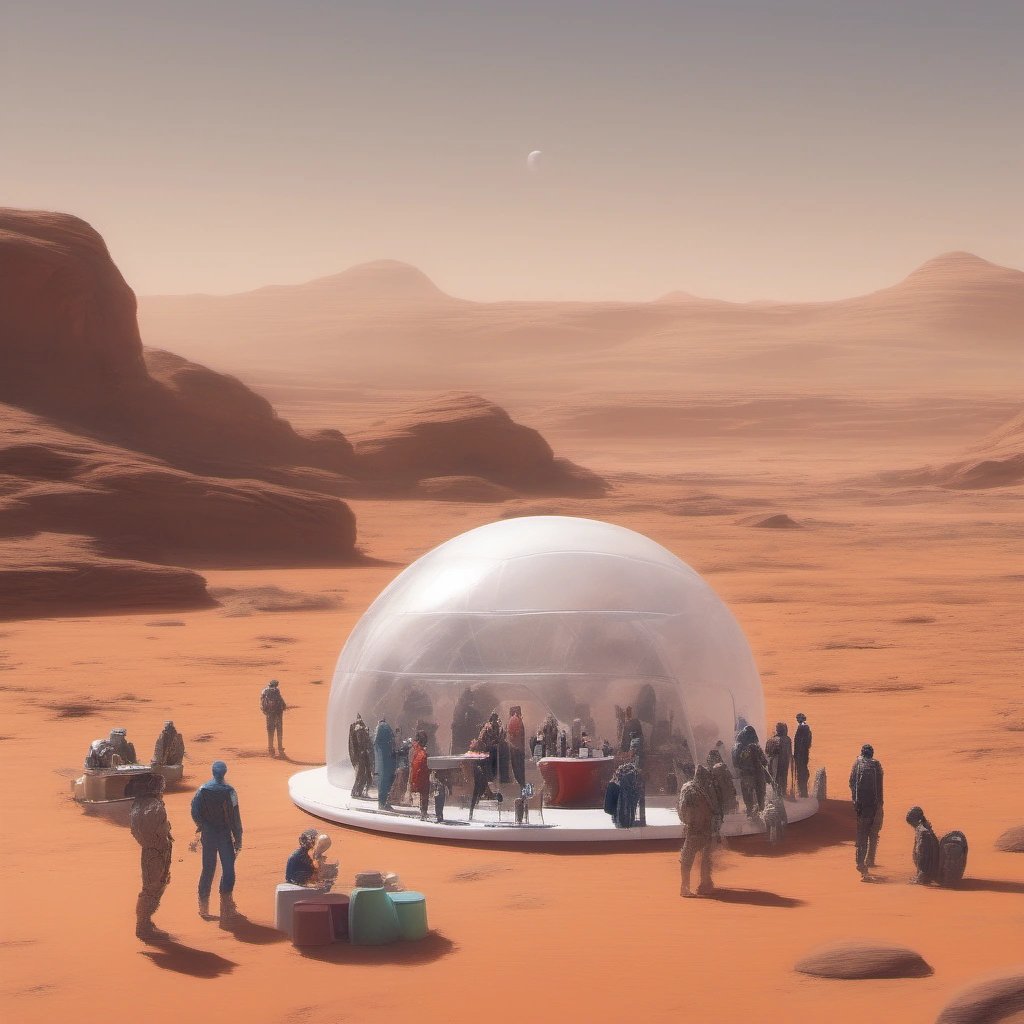In an unexpected twist, tech mogul Elon Musk has announced that the first passengers on his much-vaunted SpaceX Mars colonization mission will be not astronauts, not scientists, but technical contract-to-hire recruiters. Yes, you did read that right, the first settlers on the red planet aren't likely to be Dr. Sheldon Coopers of the world but a colony of relentless tech recruiters.
In fairness to Musk, if you've ever worked in the tech industry, this decision might not seem so outlandish. For years, developers have been pestered by recruiters who apparently possess an unrivaled knack for contacting them at the most inconvenient times, offering them jobs and contracts that by and large hinge on the ludicrous. Now, it appears the tables are about to turn.
Tech workers around the globe have reacted to the news with an unsurprising mix of joy and relief; in fact, the level of excitement in the tech industry suggests this may have been a strategic PR move from Musk. What better way to foster goodwill among developers than by offering to rocket their ceaseless tormentors into space?
Meanwhile, the recruiters seem to be taking the news surprisingly well. Most have seemingly embraced their impending one-way trip to the red planet, cheerfully assuring all their potential clients they have 'out-of-this-world' opportunities in the pipeline. Who knew all it would take to get recruiters to voluntarily leave Earth was the promise of what must surely be the most remote work location in the universe?
Of course, SpaceX has yet to confirm any specifics about the working conditions and accommodations for the settlers. However, according to some early renderings, the recruiters may be settling into kiosks outfitted with antiquated dial-up internet, solar-powered fax machines, and a single, wall-mounted corkboard for job postings.
Critics have questioned the sustainability of Musk's plan: Won't the recruiters eventually run out of people to recruit to Mars? Not to worry, Musk assured. The spaceship's cargo hold will be filled with a special brand of pseudo-scientific buzzword-generating AI, ensuring an endless supply of 'cutting-edge opportunities' and 'paradigm-shifting projects' that recruiters can use to entice Earth-based developers.
Delving deeper into the sustainability aspect, it's observed that recruiters will be entrusted with the crucial first steps for Mars colonization - setting up the essential LinkedIn networking events on the barren Martian landscape, and extending email invitations for 'networking coffee catch-ups' to everyone within a 225 million kilometers radius, promising an 'intimate roundtable discussion', with special guests that probably include the Curiosity Rover.
To cater to any eventual, and almost inevitable encounters with extraterrestrial beings, the recruiters will be equipped with classic icebreakers, such as higher-than-average base salaries, flexi-hours, and the much coveted, 'opportunity to work with top-tier Martian startup'. In the event of encountering intelligent life, they'll be expected to cold call the aliens, offering them the chance to work on a groundbreaking project that's 'like Uber, but for asteroid mining.'
Yet, despite the surreal scenario the SpaceX plan has evoked, it has generated a strange sense of camaraderie amongst the developers. The notion of their LinkedIn profiles finally being at peace, their phone calls free of unacquainted cheery voices picking their brains about Java (or was it JavaScript?), feels like the end of an era—Bitter sweet certainly, but undeniably hilarious, if only for the sheer absurdity of it all.
So, as we prepare to bid our tech recruiter friends farewell (and good luck), we're reminded of one unequivocal truth: no matter the industry, no matter the planet, you just can't escape networking events.



